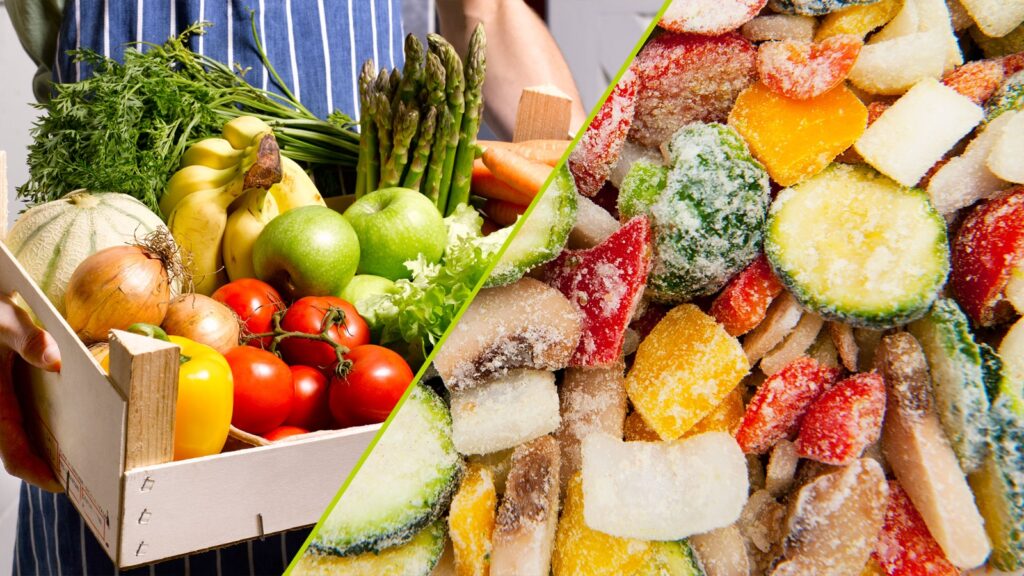In today’s fast-paced food industry, consistency, quality, and efficiency are key factors for success. Whether you operate a restaurant, a catering service, a food manufacturing facility, or a retail distribution business, having access to high-quality vegetables year-round is essential. That’s where Individually Quick Frozen (IQF) vegetables come into play. They offer superior freshness, ease of use, and longer shelf life. However, choosing the right IQF vegetable suppliers can significantly impact your product quality and customer satisfaction.
Here’s a comprehensive guide to help you make an informed decision when selecting an IQF vegetable supplier for your business.
Understanding IQF Vegetables
Before diving into supplier selection, it’s important to understand what makes IQF vegetables unique. IQF technology freezes vegetables individually at extremely low temperatures soon after harvest. This method preserves their natural flavor, color, texture, and nutrients much better than conventional freezing.
Because each piece is frozen separately, IQF vegetables are free-flowing and easy to portion, reducing food waste and improving kitchen efficiency.
Factors to Consider When Choosing an IQF Vegetable Supplier
Selecting the right supplier is not just about price. It involves evaluating multiple factors that can affect your operational efficiency and product quality.
1. Product Quality and Consistency
The foundation of any successful food business lies in product quality. When sourcing IQF vegetables, ensure your supplier adheres to strict quality control standards. Key aspects include:
- Freshness before freezing: Vegetables should be harvested at peak ripeness and frozen quickly to preserve taste and nutritional value.
- Size and cut uniformity: Especially important for restaurants and manufacturers where appearance and portion control matter.
- No added preservatives: The IQF process itself should be sufficient for long-term storage without chemical additives.
- Consistent color and texture: This ensures your dishes look and taste the same every time.
Ask for product samples before making a commitment and check for signs of freezer burn or clumping.
2. Certifications and Food Safety Standards
Food safety is non-negotiable. Your IQF vegetable supplier should meet local and international food safety certifications, such as:
- HACCP (Hazard Analysis Critical Control Points)
- ISO 22000 or equivalent food safety management system
- BRC (British Retail Consortium) certification
- FDA or USDA approval (for U.S.-based businesses)
These certifications show that the supplier follows proper hygiene, storage, and transportation procedures, minimizing risks of contamination.
3. Range of Product Offerings
A supplier with a diverse range of IQF vegetables allows you to meet varying customer demands and seasonal menu changes. Look for a supplier that offers:
- Popular vegetables like peas, corn, green beans, and carrots
- Specialty or exotic vegetables for gourmet dishes
- Custom blends tailored to your recipes
- Different cut styles—whole, diced, sliced, julienned, etc.
A wide selection can also reduce the need for sourcing from multiple suppliers, simplifying your inventory management.
4. Reliability and Delivery Capabilities
Timely delivery is crucial, especially in the foodservice industry where stockouts can disrupt operations. Evaluate the supplier’s:
- Lead times: How long does it take from order placement to delivery?
- Inventory levels: Do they keep enough stock to meet sudden demand spikes?
- Cold chain logistics: Is the transportation temperature-controlled from warehouse to your doorstep?
- Geographic reach: Can they deliver to your location consistently and on time?
Consider working with a supplier that offers flexible delivery schedules to match your business needs.
5. Pricing and Value
While cost is always a consideration, it should not be the only factor. Focus on total value, which includes product quality, delivery reliability, customer support, and long-term relationship benefits.
Many suppliers offer volume discounts or customized pricing for long-term contracts. Look for transparent pricing structures with no hidden charges.
6. Customer Support and Communication
Effective communication with your supplier can prevent misunderstandings and delays. Choose a company that provides:
- Responsive customer service: Quick resolution of issues or queries
- Clear order tracking: Real-time updates on order status
- Technical support: Assistance with storage guidelines, recipe integration, and product handling
A supplier that values your business will go the extra mile to provide excellent service.
7. Sustainability Practices
Many businesses today are committed to sustainability. Partnering with an IQF vegetable supplier who shares these values can align with your corporate responsibility goals.
Ask about:
- Sustainable farming practices
- Energy-efficient freezing processes
- Minimal packaging waste
- Ethical labor standards in sourcing regions
Consumers increasingly favor businesses that care about the environment and ethical sourcing.
Tips for Building a Long-Term Supplier Relationship
Once you’ve selected a reliable IQF vegetable supplier, nurture the relationship by:
- Providing regular feedback on quality and service
- Keeping them informed about upcoming promotions or expected demand increases
- Being clear about your delivery and inventory expectations
- Negotiating annual contracts for better pricing and priority service
A strong supplier relationship often leads to better terms, quicker responses, and improved service.
Final Thoughts
Choosing the right IQF vegetable supplier for your business is an important decision that can influence everything from your menu quality to your bottom line. By focusing on product quality, certifications, delivery reliability, customer service, and sustainability, you’ll set your business up for long-term success.
Take the time to research, sample, and compare suppliers before making your decision. The right partner will not only deliver vegetables but also deliver peace of mind—knowing that you’re providing your customers with fresh, nutritious, and high-quality food every time.

